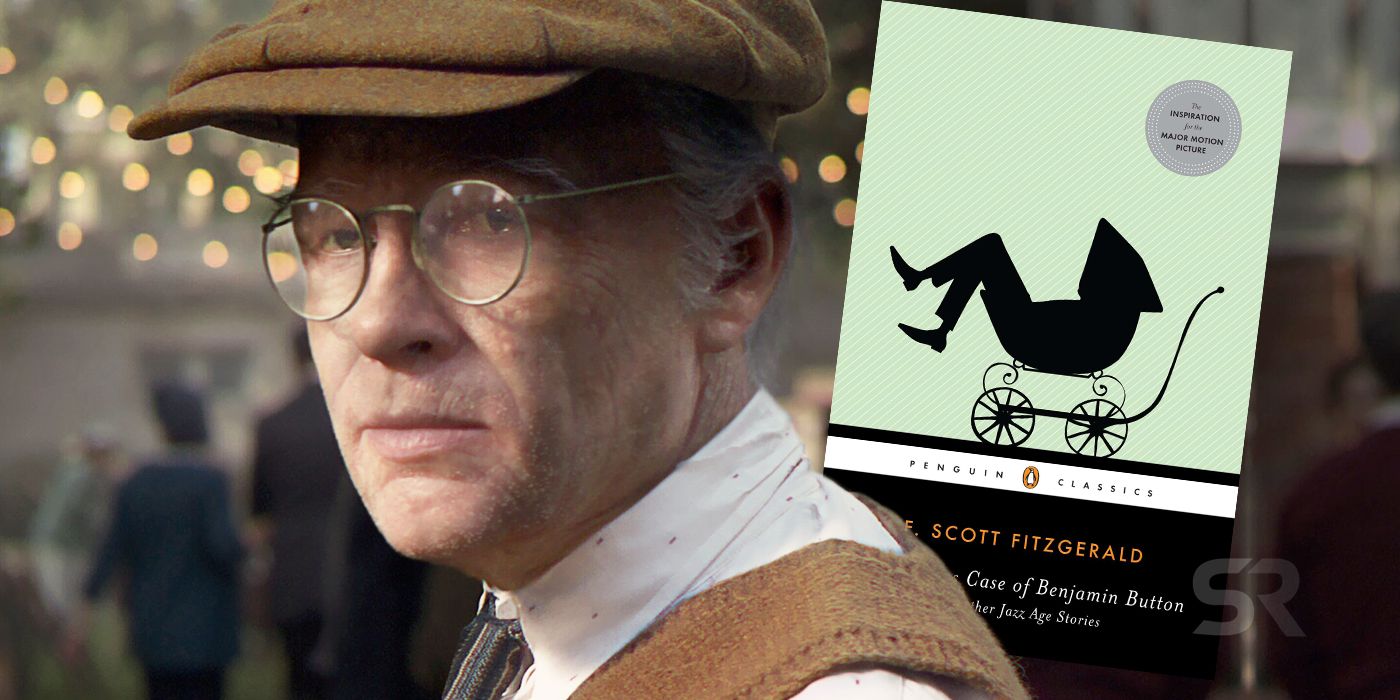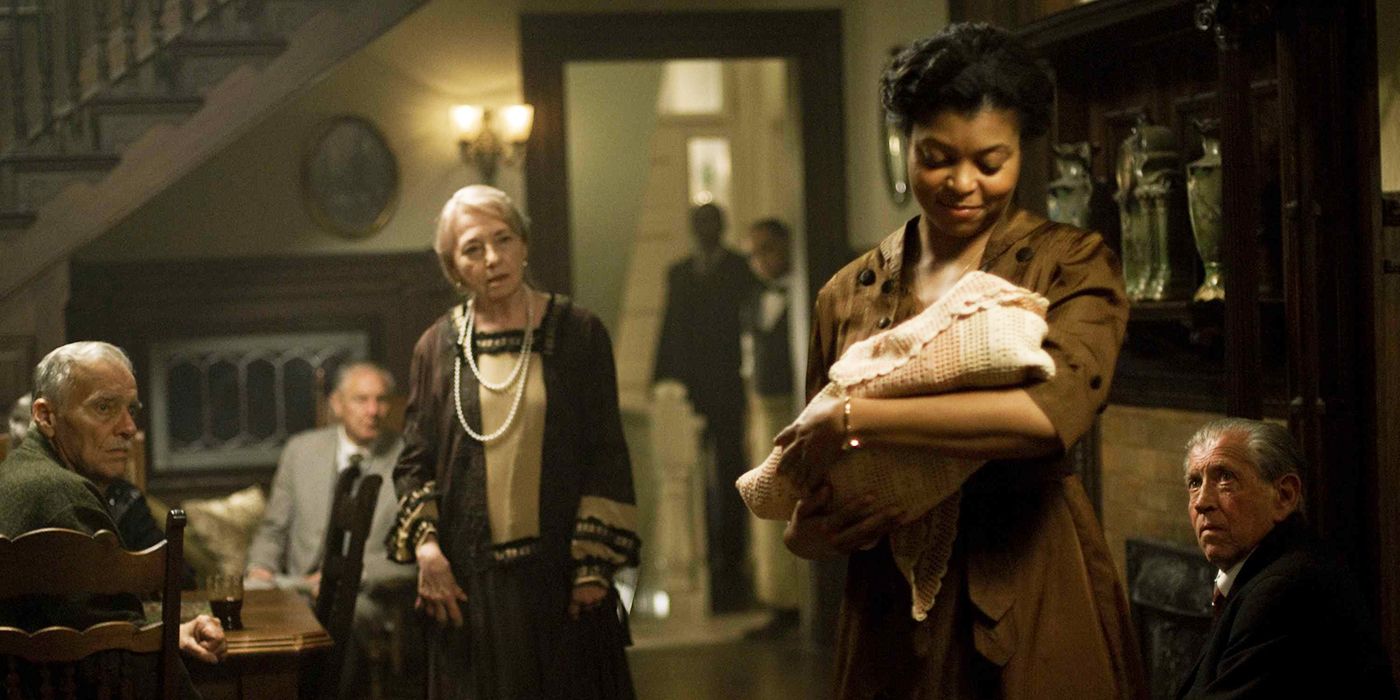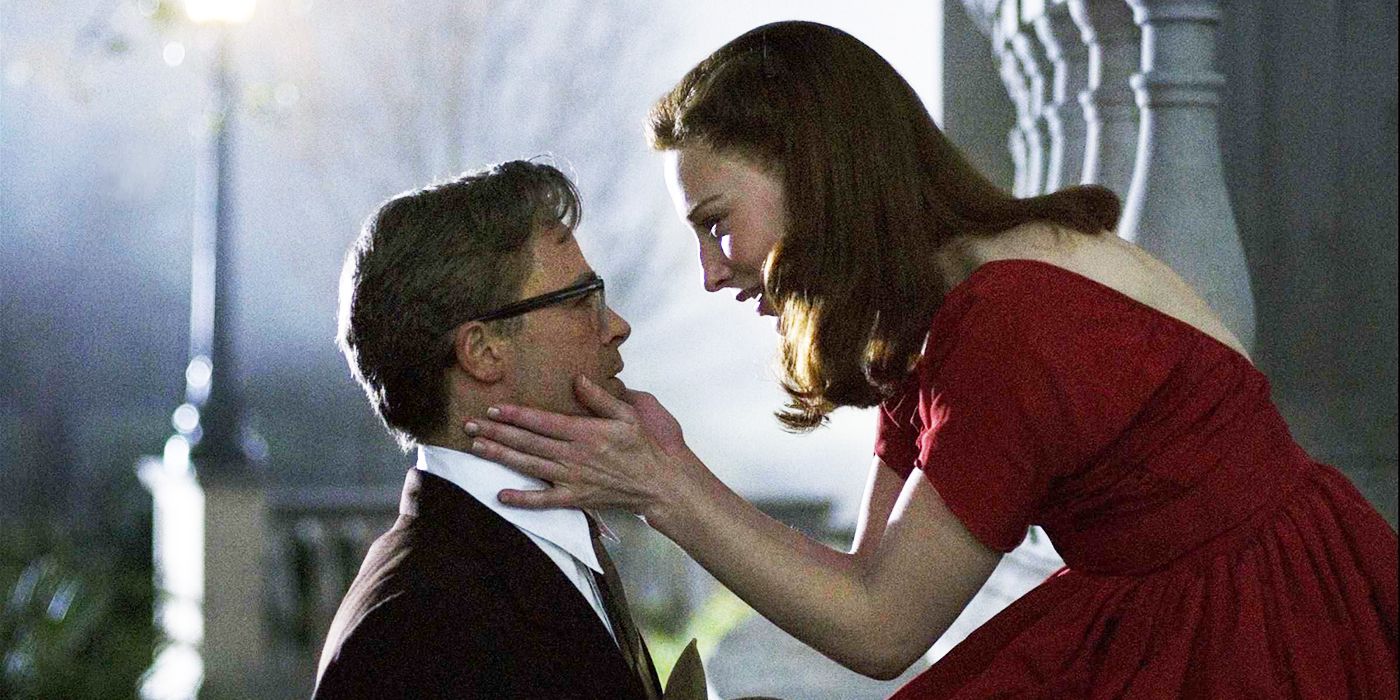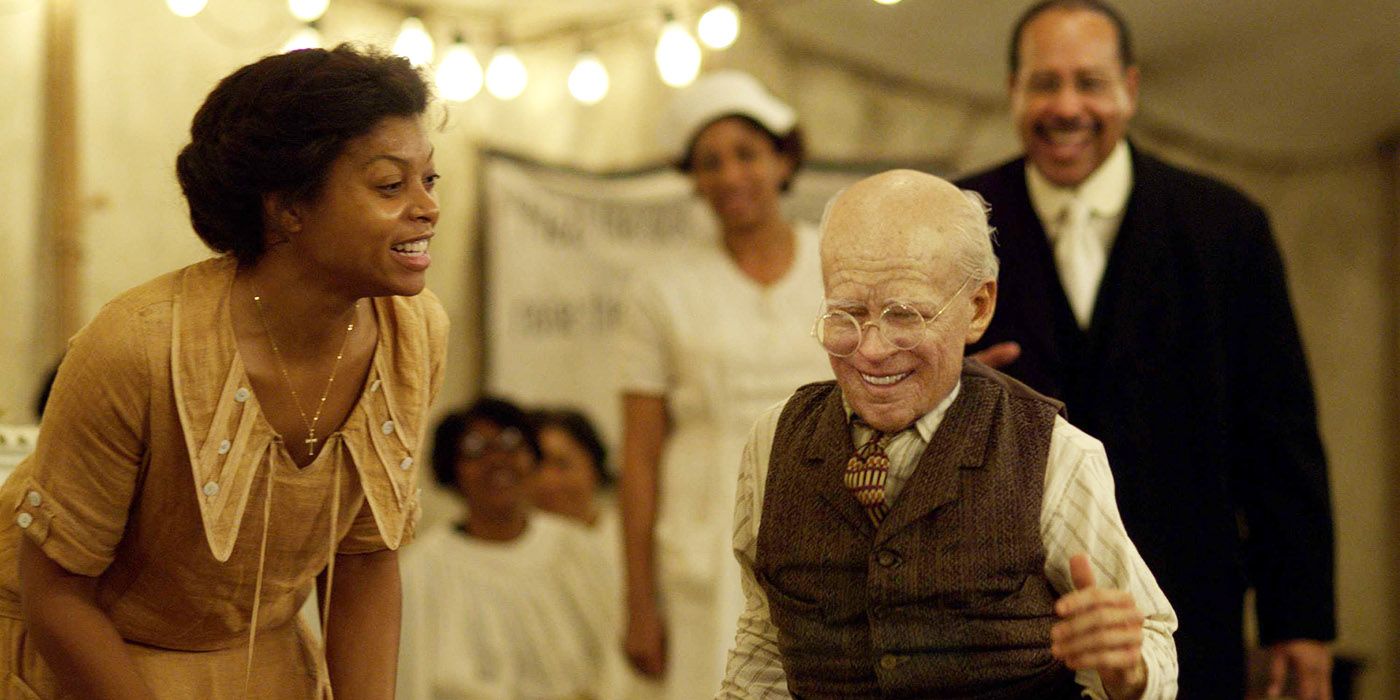David Fincher’s fantasy romance film The Curious Case of Benjamin Button is based on a short story by The Great Gatsby author, F. Scott Fitzgerald – and here’s how they compare. Following the mystery thriller Zodiac, David Fincher returned with a very different type of film, with a unique story about life and death: The Curious Case of Benjamin Button, starring Brad Pitt and Cate Blanchett.
The film tells the life of Benjamin Button (Pitt), a man born with a rare aging ailment, where he was born as an old man and aged backwards, thus dying as a baby. Button’s life wasn’t easy, but that didn’t keep him from living some interesting adventures and falling in love. Benjamin met Daisy Fuller (Blanchett), with whom he had a special bond, and ended up falling in love with her. The Curious Case of Benjamin Button offers a different look at life and death from the eyes of a man who is getting younger as years pass.
The story is not an original one, as it’s based on Fitzgerald’s 1922 short story of the same name, but it did take a lot of creative liberties with it. However, and compared to other book adaptations that made changes that ultimately messed with the core of the story, those made to The Curious Case of Benjamin Button were to expand it a bit further. Here’s how Fincher’s film compares to the short story.
Benjamin Button’s Family
In the film, Benjamin is born to the Button family, who own a company that makes buttons (of course). Given the condition and appearance of newborn Benjamin, and the fact that his mother died during childbirth, his father, Thomas (Jason Flemyng), abandons him on the porch of a nursing home. There he’s found by Queenie (Taraji P. Henson) and Mr. “Tizzy” Weathers (Mahershala Ali), and Queenie decides to raise him as her own, telling those at the nursing home that it’s her sister’s baby. Benjamin grows up surrounded by old people, and it’s easy for him to blend in due to his appearance, even though he’s not exactly an old man on the inside.
In the book, however, his family life is very different. His father is the president of Roger Button & Co., Wholesale Hardware, and though he is initially shocked by the appearance of his son, he doesn’t abandon him, but he does insist on ignoring his “condition”, and treating him as a baby. His mother isn’t mentioned in the book, so it’s implied that she died during childbirth.
Benjamin Button’s Wife
One of the biggest changes the film made was the expansion on Benjamin’s love life. In it, he loses his virginity in a brothel, taken there by Captain Mike Clark (Jared Harris), and years later begins an affair with Elizabeth Abbott (Tilda Swinton), wife of the British Trade Minister. Benjamin later reunites with Daisy, whom he met when she was seven years old, at the nursing home, where she visited her grandmother. Daisy fails to seduce Benjamin, and they go their separate ways for a few years. After a couple of obstacles in their relationship – including a car accident in Paris that leaves Daisy unable to continue with her career as ballet dancer – and both having other relationships, Benjamin and Daisy reunite once more and start a life together. A few years later, they have a daughter, Caroline, and Benjamin feels he can’t be a proper father due to his reverse aging, and decides to abandon them, though he keeps writing to his daughter.
Benjamin’s love life in the book is not as exciting as in the film. Benjamin meets Hildegarde Moncrief, daughter of General Moncrief, when they’re in their twenties (and he looks 50). Hildegarde says she prefers older men, and because Benjamin looked much older, she falls for him. They get married not long after and have a son, Roscoe. However, as Benjamin “grows younger”, he loses interest in Hildegarde, who now looks older than him, and enlists in the Spanish-American war as he’s growing bored with his life. Hildegarde later moves to Italy, and Benjamin returns to live with his son.
Benjamin Button’s Life
Although the film follows the idea of the story of a man who ages in reverse, the details on his development, both physical and mental, are completely different. In the film, Benjamin Button was born on November 11, 1918, and was the size of a regular baby but with the appearance and maladies of an old man, such as being almost blind due to cataracts. As such, doctors didn’t believe he was going to live long. But even though he looked like an elderly man, he was pretty much a child inside. He was taught how to speak, read, and walk, going from using a wheelchair to crutches, to eventually being able to stand on his own. As he grew younger, he got stronger and more agile, but as years passed, he was also affected by problems elders go through. Though he looked like a pre-teen, Benjamin was displaying early signs of dementia, which only got worse as he grew. Following the death of her husband, Daisy moved into the nursing home and cared for Benjamin for the rest of his life, even though he didn’t remember her at all.
Benjamin’s development in the book is completely different. He was born in 1860, was the size of an elderly man (which can definitely explain the possible death of his mother) and was capable of speech, having a conversation with his father minutes after they meet. Instead of looking like an old man and acting like a child, like in the film, he was an old man in all levels. He liked spending time with his grandparents rather than with other children, even though his father insisted that he played with kids his age. His father also forced him to play with children’s toys and even sent him to kindergarten, but he kept falling asleep during child activities, which didn’t appeal to him at all (and he was too old to stay awake the whole time). As he grew younger in appearance, he also did mentally, which is why he grew tired of his wife and his life, and decided to go to war and later enrolled at Harvard University (also in part as revenge against Yale for rejecting him when he was 18 but looked 50).
After graduating from Harvard, Benjamin moved in with Roscoe, who didn’t treat him nicely and demanded that he called him “uncle”. Benjamin had his moody teenager phase as he grew younger, and when he became a child, he attended kindergarten with his grandson, and this time he was really interested in all activities. Though sad at first at how Roscoe treated him, Benjamin began to lose memory of his earlier life, and grew attached to his nanny, who looked after him until his last breath. Given that The Curious Case of Benjamin Button is a short story, it was only natural that the cinematic adaptation was going to add and change many details, and in the end, the film serves as an expansion of the book in some ways, and in others is a different look at the life of a man who aged in reverse.




